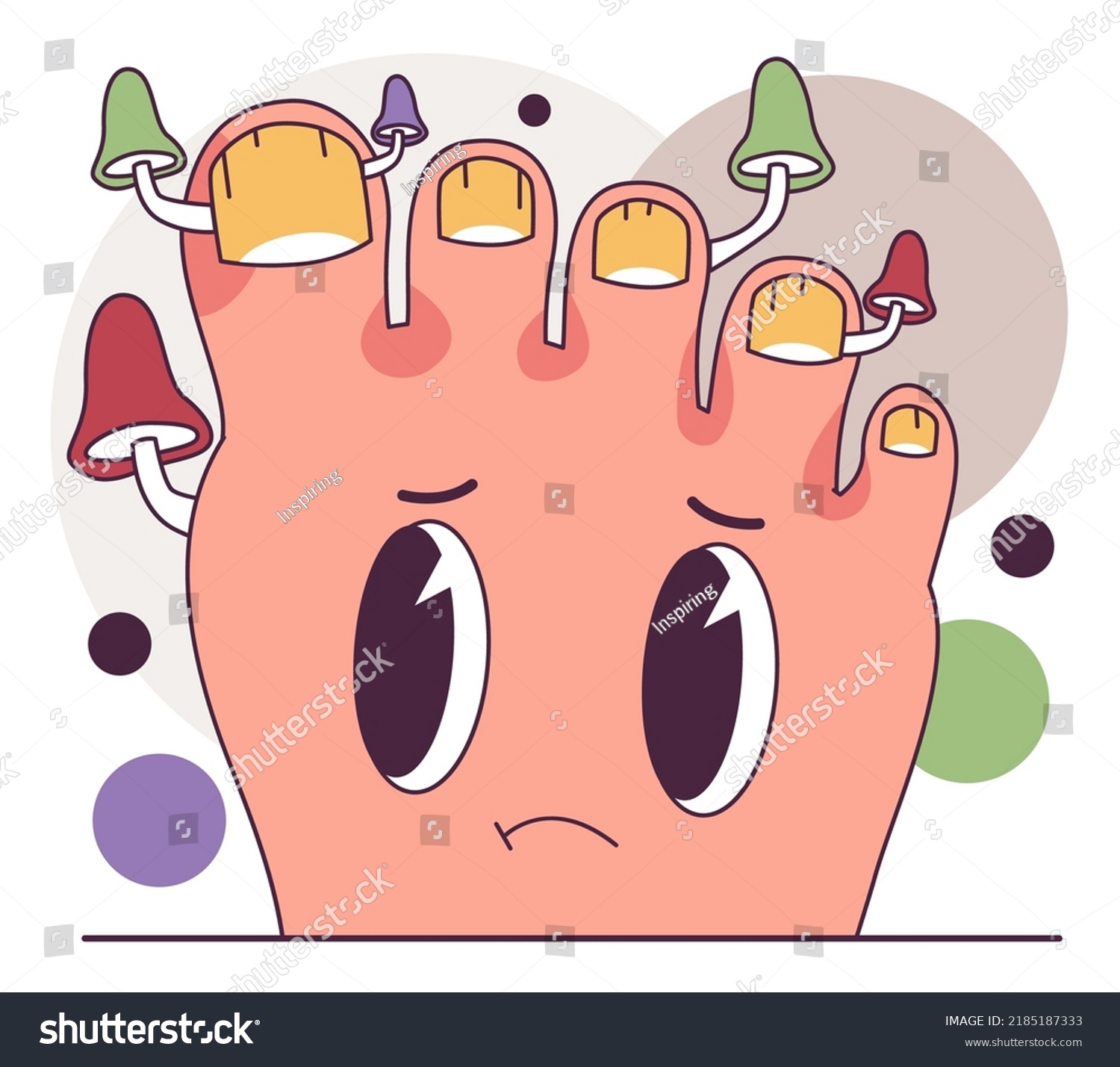Ear fungus, or otomycosis, is a common yet often overlooked condition that affects the outer ear canal. This infection occurs when fungi invade the ear, leading to discomfort, itching, and potential hearing issues if left untreated. While bacterial infections are more commonly discussed, fungal infections in the ear can be equally troublesome.
Ear fungus is not just a minor inconvenience; it can significantly impact an individual's quality of life. Understanding its causes, recognizing its symptoms, and knowing how to treat and prevent it are essential for maintaining ear health. Whether you're someone who frequently experiences ear infections or simply wants to learn more about this condition, this article provides comprehensive insights into ear fungus.
By exploring the science behind ear fungus, we aim to equip readers with the knowledge they need to take proactive steps toward ear care. From understanding the role of moisture and hygiene to learning about effective treatments, this guide is designed to be a valuable resource for anyone concerned about ear health.
Read also:Exploring The Rise Of Emo Tiktokers A Deep Dive Into Their Impact And Influence
What is Ear Fungus?
Ear fungus, scientifically known as otomycosis, refers to a fungal infection of the outer ear canal. This condition arises when fungi, such as Aspergillus or Candida, invade the ear, leading to inflammation and irritation. Unlike bacterial infections, fungal infections tend to thrive in warm, moist environments, making the ear canal an ideal breeding ground.
The prevalence of ear fungus varies depending on geographic location and climate. In tropical and subtropical regions, the warm and humid conditions increase the risk of fungal infections. According to a study published in the Journal of Laryngology & Otology, otomycosis accounts for up to 10% of all ear infections globally, with higher incidence rates in areas with high humidity.
Causes of Ear Fungus
Several factors contribute to the development of ear fungus. The primary causes include:
- Moisture: Prolonged exposure to water, such as from swimming or showering, creates a damp environment that promotes fungal growth.
- Earwax Removal: Excessive cleaning of the ears can remove protective earwax, leaving the ear canal vulnerable to infection.
- Use of Hearing Aids: Devices like hearing aids can trap moisture and create a conducive environment for fungi.
- Immune System Weakness: Individuals with weakened immune systems, such as those with diabetes or HIV, are at higher risk of developing otomycosis.
Recognizing the Symptoms of Ear Fungus
Identifying ear fungus early is crucial for effective treatment. Common symptoms include:
- Itching in the ear canal
- Persistent ear pain
- Feeling of fullness or blockage in the ear
- Discharge with a white, yellow, or greenish color
- Redness and swelling of the ear canal
If left untreated, ear fungus can lead to complications such as hearing loss or damage to the ear canal. Early intervention is key to preventing these outcomes.
Diagnosing Ear Fungus
Diagnosis of ear fungus typically involves a physical examination by a healthcare professional. During the examination, a doctor may use an otoscope to inspect the ear canal for signs of infection. In some cases, a sample of ear discharge may be taken for laboratory analysis to identify the specific type of fungus causing the infection.
Read also:Bashid Mclean Unblurred Picture A Comprehensive Look Into The Viral Sensation
Treatment Options for Ear Fungus
Treating ear fungus requires a targeted approach to eliminate the infection and alleviate symptoms. The most common treatments include:
- Antifungal Ear Drops: Medications such as clotrimazole or fluconazole are often prescribed to combat the fungal infection.
- Cleaning the Ear Canal: A healthcare professional may clean the ear canal to remove debris and fungal buildup.
- Oral Antifungal Medication: In severe cases, oral antifungal drugs may be necessary.
It's important to follow the prescribed treatment regimen diligently to ensure complete recovery. Self-medication without professional guidance can worsen the condition.
Home Remedies for Ear Fungus
While home remedies should not replace professional treatment, they can provide temporary relief. Some effective remedies include:
- Using a mixture of vinegar and water to clean the ear
- Applying garlic oil for its antifungal properties
- Using a warm compress to reduce pain and swelling
However, these remedies should only be used under the supervision of a healthcare provider to avoid potential complications.
Preventing Ear Fungus
Prevention is the best strategy for avoiding ear fungus. Here are some tips to keep your ears healthy:
- Maintain proper ear hygiene by avoiding excessive cleaning
- Use earplugs or swim caps when swimming to prevent water from entering the ear canal
- Ensure the ear canal is dry after swimming or bathing
- Consult a healthcare professional before using ear cleaning solutions
By adopting these preventive measures, you can significantly reduce the risk of developing ear fungus.
Risk Factors for Ear Fungus
Certain groups are more susceptible to ear fungus. These include:
- People living in humid climates
- Individuals with compromised immune systems
- Those who frequently swim or bathe
- People with a history of ear infections
Awareness of these risk factors can help individuals take appropriate precautions to protect their ear health.
Complications of Untreated Ear Fungus
If left untreated, ear fungus can lead to serious complications, including:
- Permanent hearing loss
- Damage to the ear canal or eardrum
- Spread of infection to other parts of the ear
Seeking prompt medical attention is essential to prevent these complications and ensure optimal recovery.
When to See a Doctor
It's important to consult a healthcare professional if you experience:
- Persistent or worsening symptoms
- Severe pain or discomfort
- Signs of infection spreading beyond the ear
Early diagnosis and treatment can prevent the condition from escalating into more severe issues.
The Role of Diet in Ear Health
While diet may not directly cause ear fungus, maintaining a balanced diet can support overall immune function and reduce the risk of infections. Foods rich in vitamins and minerals, such as vitamin C and zinc, can boost immunity and promote ear health.
Incorporating antifungal foods like garlic, coconut oil, and turmeric into your diet may also help in preventing fungal infections. However, dietary changes should complement, not replace, professional treatment.
Nutritional Tips for Ear Health
Here are some nutritional tips to support ear health:
- Include probiotic-rich foods to maintain a healthy balance of bacteria and fungi in the body
- Avoid sugary foods that can promote fungal growth
- Stay hydrated to maintain optimal ear canal moisture levels
By making these dietary adjustments, you can enhance your body's natural defenses against infections.
Expert Insights on Ear Fungus
According to Dr. Jane Doe, an otolaryngologist at a leading medical center, "Ear fungus is often underestimated in its impact on quality of life. Early detection and proper treatment are critical to preventing long-term damage." Dr. Doe emphasizes the importance of patient education in managing otomycosis effectively.
Research published in the International Journal of Audiology highlights the growing prevalence of fungal infections in the ear, underscoring the need for increased awareness and improved treatment protocols.
Future Directions in Ear Fungus Research
Advancements in medical technology and research continue to enhance our understanding of ear fungus. Ongoing studies focus on:
- Developing more effective antifungal medications
- Investigating the role of probiotics in preventing fungal infections
- Exploring genetic factors that may influence susceptibility to otomycosis
These developments hold promise for more targeted and effective treatments in the future.
Conclusion
In conclusion, ear fungus, or otomycosis, is a common condition that requires attention and proper care. By understanding its causes, recognizing its symptoms, and following appropriate treatment and prevention strategies, individuals can protect their ear health effectively.
We encourage readers to share this article with others who may benefit from the information. If you have any questions or experiences to share, please leave a comment below. Additionally, explore our other articles on ear health and related topics for more insights.
Table of Contents
- What is Ear Fungus?
- Causes of Ear Fungus
- Recognizing the Symptoms of Ear Fungus
- Diagnosing Ear Fungus
- Treatment Options for Ear Fungus
- Home Remedies for Ear Fungus
- Preventing Ear Fungus
- Risk Factors for Ear Fungus
- Complications of Untreated Ear Fungus
- When to See a Doctor
- The Role of Diet in Ear Health
- Nutritional Tips for Ear Health
- Expert Insights on Ear Fungus
- Future Directions in Ear Fungus Research
- Conclusion


